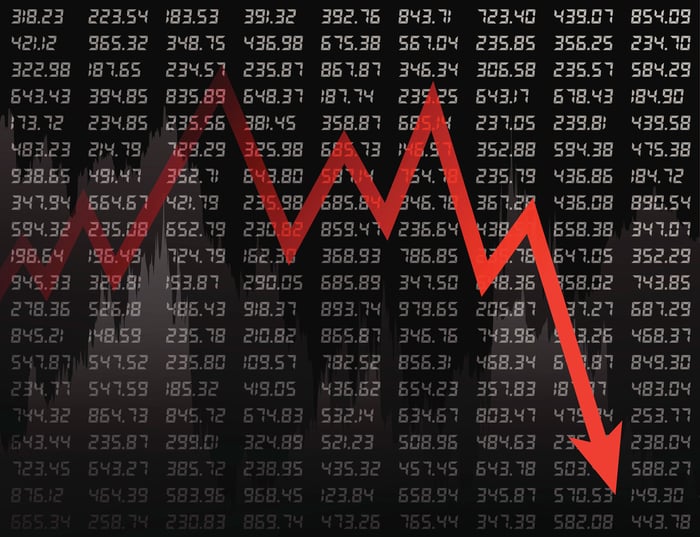What happened
It's been a bad week for "meme stock" investors so far, as predictions of doom mounted for stocks with bad business prospects and no profits to fall back on.
Meme stocks' bad news actually began a week ago, when investment bank Goldman Sachs observed that retail investors' willingness to risk their money betting on short squeezes -- that might or might not happen -- was waning. In the second quarter, warned the banker, trading volumes at retail brokerages showed as much as a 30% sequential decline in meme stock buying. And of course, it's hard to create a short squeeze without buyers.
Result: Meme stocks took a tumble, with Eastman Kodak (KODK 0.22%) closing Thursday down 8.5% from Friday's close, BlackBerry Limited (BB -1.43%) losing 10.4%, and GameStop (GME 1.07%) crashing to a 12.8% loss.

Image source: Getty Images.
So what
Only in one instance was there actual news to explain the declines. In fact, more than half of GameStop's losses for the week came on just one trading day -- Wednesday -- when Bloomberg reported that Netflix is eying an entry into the video game space, in which it will de facto compete with GameStop.
As for the other companies, though -- and as for meme stocks in general -- it's primarily a shift in sentiment against the companies that's weighing on their stock prices. Following up on Goldman's negative take, Franklin Resources CEO Jenny Johnson chimed in on Wednesday with a warning that traders "could lose everything" if they persist in buying meme stocks.
Now what
Attractive as it might be to think you're "sticking it to the man" on Wall Street by buying stocks that "hedge funds" are shorting, the simple truth is that neither BlackBerry nor Kodak has earned any profit whatsoever since 2019 -- and GameStop hasn't earned a profit since 2018.
"I never like investing where there isn't fundamentals behind it," Johnson told Yahoo! Finance Wednesday. While it's certainly true that a lucky few traders could make -- indeed, have made -- money trying to time the market on meme stocks, there's no underlying value to the companies behind the stock tickers -- no profits. That means, the moment sentiment turns against them, there's literally nothing left to prop up the stock price.
Johnson just thinks that's a bad way to invest, and I cannot disagree.





